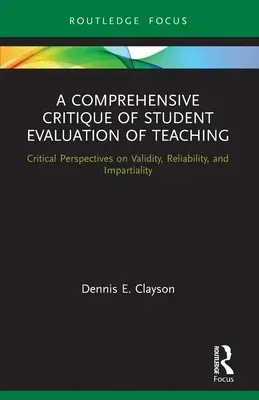Dennis E Clayson
(Author)A Comprehensive Critique of Student Evaluation of Teaching: Critical Perspectives on Validity, Reliability, and ImpartialityPaperback, 1 August 2022

Qty
1
Turbo
Ships in 2 - 3 days
Only 3 left
Free Delivery
Cash on Delivery
15 Days
Free Returns
Secure Checkout

Part of Series
Routledge Research in Higher Education
Print Length
152 pages
Language
English
Publisher
Routledge
Date Published
1 Aug 2022
ISBN-10
0367549859
ISBN-13
9780367549855
Description
Product Details
Author:
Book Format:
Paperback
Country of Origin:
US
Date Published:
1 August 2022
Dimensions:
21.59 x
13.97 x
0.89 cm
ISBN-10:
0367549859
ISBN-13:
9780367549855
Language:
English
Location:
Oxford
Pages:
152
Publisher:
Weight:
195.04 gm